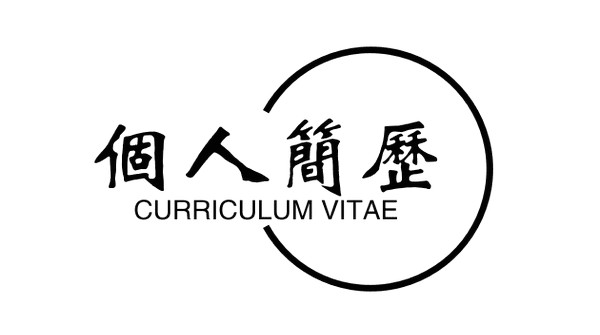[转]How to Write a Good Technical Resume? The Importance of Writing a Good Resume
Publish: 2019-11-28 | Modify: 2019-11-28
This article is shared by a user from V2EX and provides a good summary. I am reposting it here to share with others, hoping it can provide some reference and help for those who are currently looking for a job or will be looking for a job soon. (Content has been edited)

Background Introduction
I primarily work as a backend developer (PHP+GO) and have some frontend skills (Vue technology stack). I am also learning Swift (for iOS development). Currently, I work as a technical lead in a small company and am responsible for recruitment. Since the HR department is not familiar with technology, they often ask me to personally screen resumes on platforms like BOSS Zhipin and Zhaopin.
Self Introduction
Basic information, no need to say too much. Some points to note: try not to include a photo. As a developer, it doesn't matter if you don't include a photo. Including a photo can cause fluctuations in the reader's mindset, distract their attention, and lead to unnecessary speculation.
Personal Introduction & Skills
I prefer to write this part first, before the project experience, to give readers an intuitive feeling about the job seeker. Personally, I want to leave an impression that this job seeker is someone who "likes to learn new things, likes to tinker, and has a geek spirit." This part should have "highlights", which are different from others and can show the individuality of the person. If there are no highlights, then you should reflect on it and start accumulating them now.
This part is often written in a similar way by many people, so I have to find the highlights from the middle. Even if there are one or two, they can become points that influence my decision, making you more competitive.
Here are a few points to avoid:
- Do not write subjective things like "hardworking, good at learning, etc." because they cannot be verified and others cannot believe you. Speak directly with facts, such as "proficient in multiple languages, familiar with PHP, can use Golang and Python", then others will know that you may be "good at learning."
- Do not write things that everyone should know, things without technical content. For example, "parsing JSON/XML data format", "installing extensions with Composer", "proficient in using git".
- Do not write things that cannot be proven or are difficult to prove. Stick to facts. For example:
- "Familiar with ThinkPHP5 framework" vs. "Read parts of the ThinkPHP5 source code, familiar with the flow and implementation of components including routing, container, and logging."
- "Proficient in Linux commands" vs. "Can use TcpDump for packet capture and use commands like Strace and lsof to troubleshoot I/O bottlenecks."
- Do not write about experiences using certain tools unless it is specifically mentioned in the job description or has special technical content. This includes but is not limited to "LAMP environment setup", "using Alibaba Cloud", "integrating WeChat/Alipay payments", "integrating JPush SDK and Umeng Share SDK", etc.
- Do not believe, or even directly copy resume templates (such as this one: https://github.com/resumejob/awesome-resume/blob/master/README.md). Because your competitors are likely doing the same thing, the skills introduction part of your resume will be without highlights. Take it as a reference, but don't copy it directly. If you can't even think about your resume, others will easily think that you are someone who doesn't like to think, which is not good for a programmer who needs to think every day.
- Do not write things unrelated to technology, such as "knowing Photoshop", "having a driver's license", "knowing how to use OFFICE and reinstall the system, connect network cables", etc. Hobbies and special skills can be written at the end as a supplementary conclusion in the personal introduction.
Highlights
Considering that most people (including myself) do not have 10,000+ stars on GitHub, have not written any open-source frameworks, etc., many people think they have no highlights. I don't think that's the case.
For example, I think being "proficient in using VIM (with commonly used plugins like easymotion, CtrlP, YCM) and proficient in using zsh+Tmux to manage servers" can be considered a highlight, as only a few people like to tinker with VIM, which makes people think they might be more geeky.
Other possible highlights that I think are:
- Participation in open-source projects and writing open-source components
- Having a personal blog (genuine, original content with some depth, such as summaries of tricky problems or experiences in overcoming challenges). Personally, I usually read these.
- Knowing multiple languages
- Having the habit of reading source code
- Researching new extensions, tools, and open-source projects
These vary from person to person. But still, at least it can show that you enjoy coding. If you don't have any, then you should consider accumulating some.
Work & Project Experience
Personally, I prefer to mix the company and project together when writing. I will explain the reasons later. Generally, people know to list experiences in reverse chronological order. I won't go into that technique.
HR departments usually pay attention to stability and how long someone has worked at a company. As a technical person, I mainly care about the projects to exclude outsourcing companies. So, mixing the company and project together reduces the amount of reading required. If they are mixed, careful verification is needed. Some people don't even write the project time at all, just listing all the projects together. I don't like this and won't read it.
Therefore, the format I recommend is usually:
Company XX, Position: Senior Developer, May 2017 - May 2019
One-sentence simple introduction: As a leader, responsible for xx development, leading a team of 3 people, designed the architecture of the XX project. A simple introduction is enough.
If there are notable achievements, they can be listed separately, such as server performance optimization, increasing QPS from xx to XX, reducing website response time by xxms, etc.
Project A:
One-sentence project introduction: The project mainly consists of community information flow and e-commerce parts. I am responsible for the xx part.
Technologies used: XX extension, XX framework, XX design patterns, etc.
Company XXB ...Some things to avoid:
- Write less about things unrelated to technology, and even less about things that everyone knows in n companies. For example, "Responsible for project software development and coding, writing related technical documents, improving and optimizing performance, providing technical support..." In summary, it means "I wrote code..." This does not need to be written in a resume.
- Project introductions should try to allow people to judge the complexity of the technology used. Do not write advertising slogans for projects. For example, many people write "The purpose of project x is to promote peace and love. We facilitate users through the xx platform, promote world peace, and increase the country's GDP..." This confuses people and makes it difficult to judge what technology was used. Even if the user base is not large, it is better to write "Used Laravel framework (including queue, event, and service), used open-source extension Laravels Telescope..." It would be better.
- If there are many projects, choose a few key ones to write about. For example, avoid writing about "management background" projects unless they are particularly substantial.
- Avoid writing in a diary-like manner. A small number of people write this part like a diary, "We started in xx year, went through xx, then xx happened, and so on." It is hundreds of words without line breaks, causing the reader's brain to freeze.
- Don't write about projects that have no relevance. It is best to have relevance. Generally, a company's main business is not too diverse. If you have worked on a novel project, a travel project, and a P2P loan project all in one company, I will think that the projects lack continuity, making it more difficult to take responsibility and increasing the likelihood of hasty conclusions.
Details
As product developers, we all know the importance of "polishing", which means paying attention to details. A resume is the most important competitive tool for you and other hundreds of competitors, so it needs to be carefully polished. Many details should be noted, especially for a programmer's resume. If you pay attention to details and show rigor in every aspect, it will leave a better impression because that's what this position requires.
Things to pay attention to usually include spelling errors, incoherent sentences, etc. I won't go into detail on those. After all, a resume is a formal document, not a casual forum post. Not being able to do these things is usually a minus point.
Here are a few examples that are not easily valued:
- Capitalization. For example, "ios vs. iOS", "mysql vs. MySQL".
- Issues with the nature of technology. For example, "familiar with Ajax framework", "familiar with ES6 language", "LNMP language", etc.
- Document format issues. Some recruitment websites allow you to upload custom formats. It is best to use PDF. After all, many developers use Mac, and if a Word document is used, there are often various issues on Mac. Moreover, PDF opens faster than Word.
Anyway, a resume is a precious document, and every word deserves careful consideration. Adjustments should also be made according to the position at different companies to increase competitiveness.
Wishing every developer to find their dream job. Best regards.
The final interpretation rights belong to the author. Original article: How to write a good technical resume?
Comments

xiaoz
I come from China and I am a freelancer. I specialize in Linux operations, PHP, Golang, and front-end development. I have developed open-source projects such as Zdir, ImgURL, CCAA, and OneNav.
Random article
- [AD] Open Alibaba Cloud International Account without Credit Card/PayPal
- Using PDFObject to Preview PDF Files in Vue3
- Google's AI Bard now open for applications, with FAQs attached
- Recording the Experience and Solutions of Failed aaPanel Installation Environment
- Thanks to the powerful drive of OpenAI and ChatGPT, the AsBot Android client is now complete.
- Baidu Launches Intelligent DNS Cloud Resolution Service
- How to make Windows App Store go through a proxy? This little trick tells you
- Notice of Server Upgrade for Little Z's Blog
- Megalayer November Promotion: CN2 Dedicated Servers for 99 RMB/month, plus VPS Flash Sale for 9.9 RMB
- Deploying Simplenote with Docker for Web Access